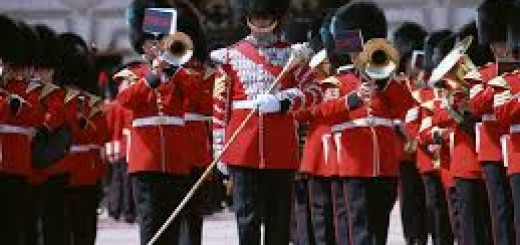TECHNOLOGIES AROUND US
OBJECTIVES:
- to stimulate creative students’ thinking;
- to revise the vocabulary on the topic;
- to improve the students’ listening, reading, speaking skills.
EQUIPMENT: tape-recorder, multimedia, a course book, tables, pictures.
PROCEDURE
Introduction
- Warm up. Teacher: “Look around. We see many things which make our life easier and comfortable. And now you must make the word-map of devices we have at home.” (presentation, slide 2)
| car | fridge | TV |
| radio | house hold devices | washing machine |
| phone | micro wave | vacuum cleaner |
Click
- Put the words in order finishing with the most useful device. Explain your opinion. (presentation, slide 3)
VACUUM CLEANER-CAR- FRIDGE- COOKER -VIDEO RECORDER- ELECTRICITY- BATH- DISH WASHER- CALCULATOR- COMPUTER- MIXER
Speaking
- Complete the table. Think and write down useful, entertaining and dangerous inventions. Explain your choice. (Pupils’ answers )
(presentation, slide 4)
| USEFUL | ENTERTAINING | DANGEROUS |
| internet (get information) | internet (play games) | internet (addiction) |
| fridge (keep food fresh) | TV (watch films and rest) | car (pollute the nature) |
| oven(cook) | radio (listen to music) | gun (kill people, animals) |
| washing machine (keep clothes clean) | book (get pleasure) | plane (aircraft) |
Click.
- Compare our answers.
- Match the qualities below to the devices. (presentation, slide 5)
| Car | fax machine | clock | bicycle | lift | camera | airplane | spoon | bread-maker |
expensive , cheap, helpful, dangerous, easy to use, comfortable, little, large, heavy, modern, reliable, durable.
The pupils describe the situations when they use the things above. (How often, Why)
- Fill in the words from the list, then make sentences using the completed phrases. (presentation, slide 6)
Web, surf, exchange, computer, change, electronic, enter, current, phone, important, get
- … inventions
- to … the world
- … lines
- to … information
- … documents
- a … site
- to … the address
- a … screen
- to … the net
- … events
- to … started
Listening
- A) Listen to a part of a dialogue about the pros and cons of Internet cafes. Tick (v) if the sentence is correct, (x) if the sentence is incorrect. (presentation, slide 7)
- Jean thinks it is better for children to play outside
| X | |
|
V |
|
V |
|
V |
|
V |
- b) Express your attitude to the Internet cafes. (Pupils’ answers.)
The dialogue to listen to(Track 7).
- So, where’s Toby today, Jean?
- Oh, he’s down at the Internet cafe? again. He doesn’t seem to go anywhere else these days. He loves it there.
- Oh, yes … I have to say I don’t let Jamie go there. I don’t think it’s healthy for young people to spend so much time indoors staring at the computer screen. They should be out in the open air.
- Oh, come on, Kathy! Kids these days love computers …they can’t get enough of them! I don’t think there’s any harm in them surfing the net together. They could be doing far worth thing. I like the fact that Toby’s got somewhere safe to meet his friends and go out.
- Hmm … well, I don’t know. I think that it’s bad for kids’ eyes to use computers. More and more kids these days need games, and I’m sure it’s because they use computers too much.
- Oh, I don’t think that’s true! If they didn’t go to the Internet cafe?, they’d stay here and watch T V. It’s the same thing. At least when they’re at the cafe? they can be with their friends.
- Yes, and who knows, who they’re meeting down there? All kinds of people go to the Internet caf? … It’s very smoky, too. I don’t want Jamie hanging around in smoky cafes with a lot of strangers.
- Oh, Kathy, you worry much! Besides, going to the Internet cafes gives Toby a chance to do research for his school subjects. We don’t have the Internet at home, and he needs to find all sorts of information for his homework.
- Well, He’d be better off going to the library. I hate to think what kind of information is available to kids online. They could be reading about anything!
- Oh, come on, Kathy! Don’t you think you’re being a bit silly? The kids are just having fun, and learning a few things at the same time. They can meet new friends in the chartrooms and send emails to their mates, instead of being stuck in their bedrooms all alone and bored to death. I think the Internet caf? is great. Why don’t you let Jamie go with Toby one evening.
Reading
- I want you to name the famous scientists and their inventions. What interesting stories about them do you know? (Pupils’ answers).
And now you must complete the texts, using the past tense forms of the verbs in the box below. Use negative too! (presentation, slide 8)
| Invent | be (3) | say | know | come | use | crash | cut |
| have | break | like | throw | explode | like | take | kill |
- When Joseph Merlin …. (1) roller skates in 1760, he decided to demonstrate them at a large party. Half way through the party, he appeared in the ballroom wearing his skates and playing a violin.
Unfortunately he …. (2) how to turn or stop, and he …. (3) into a large mirror at the end of the room. He …. (4) the mirror and his violin, and ended up in hospital.
- A customer in an expensive New York restaurant complained to head waiter George Grum that he …. (5) his chips because they were too thick. Grum …. (6) very annoyed. He …. (7) into the kitchen, …. (8) a potato into very thin slices, and …. (9) the slices into a par of hot oil. Then he …. (10) them back to a customer, who to Grum’s surprise…. (11) that tasted delicious. They …. (12) the world’s first potato crisps.
- In 1868, the City Council set up the world’s first traffic light outside the Houses of Parliament in London. The traffic light …. (13) electricity – instead it …. (14) gas lamps behind red and green glass. It …. (15) a great success: after a few days it …. (16) and …. (17) a policeman. It was almost 50 years before they built another traffic light.
Key. (1-invented, 2-did not know, 3-crashed, 4-broke, 5-did not like, 6-was, 7-came, 8-cut, 9-threw, 10-took, 11-said, 12-were, 13-did not use, 14-bad, 15-was not, 16-exploded, 17-called.)
Now put the questions to the texts above, starting with the following questions words.
| WHEN….? | HOW …. ? | WHY ….? | WHERE ….? | ||
| WHAT ….? | WHAT KIND OF ….? | WHO ….? | |||
Conclusion. T. We spoke much about the important things around us, how they make our life easier and more comfortable. If you were a scientist what would you invent to improve people life?
Homework: To write



